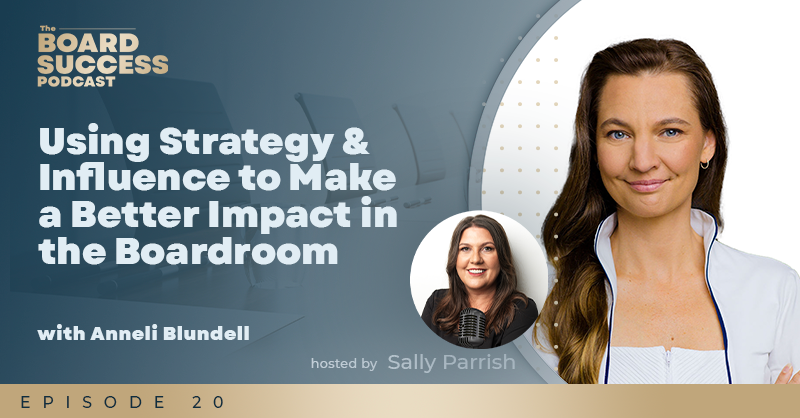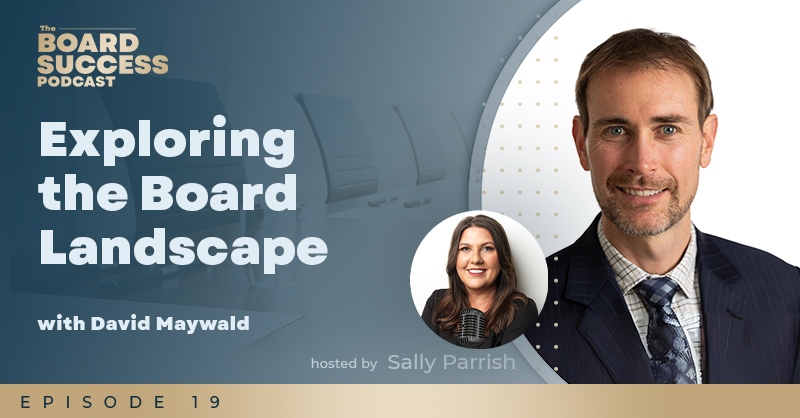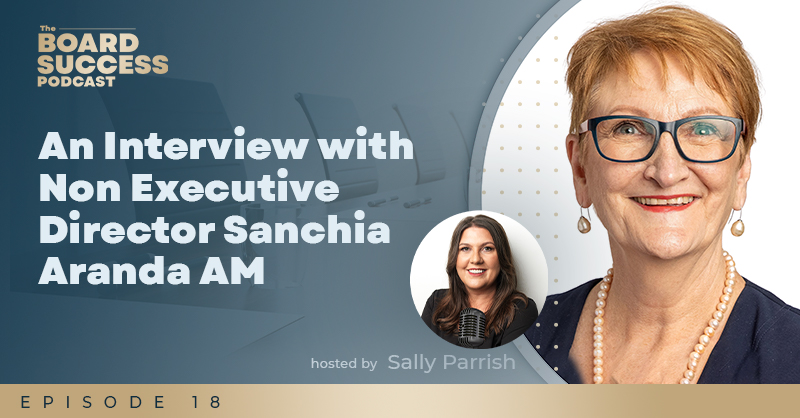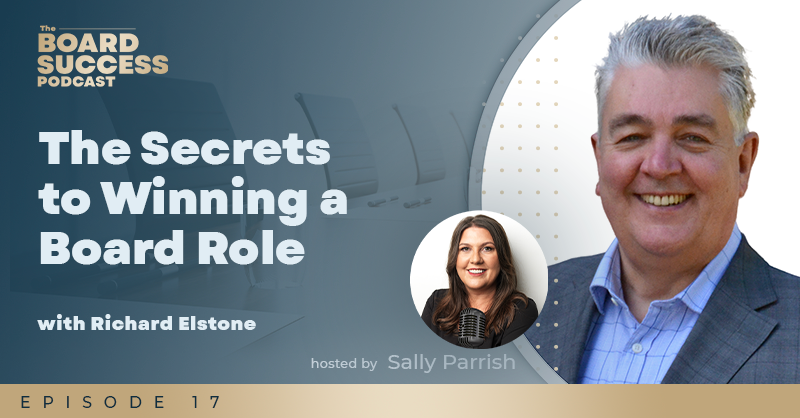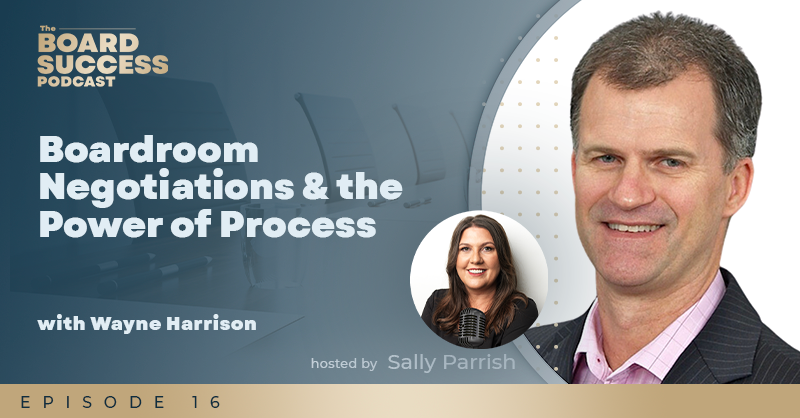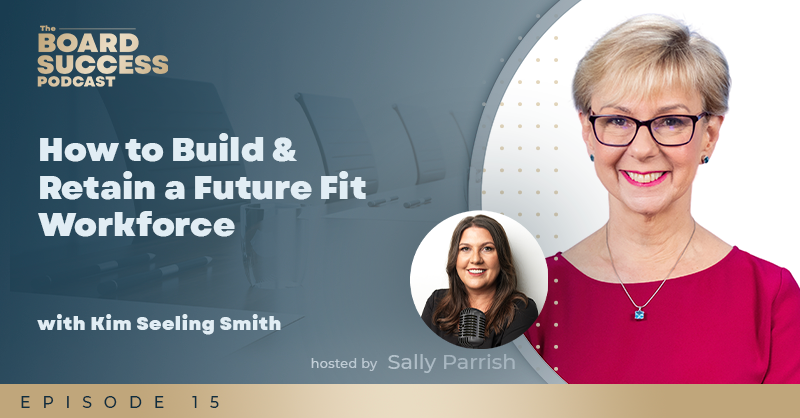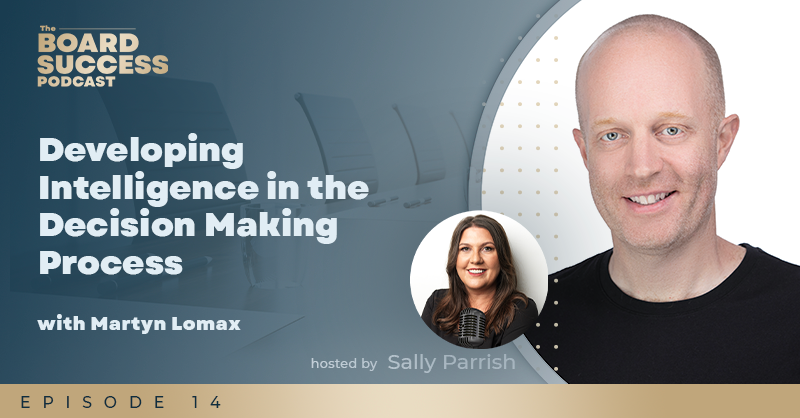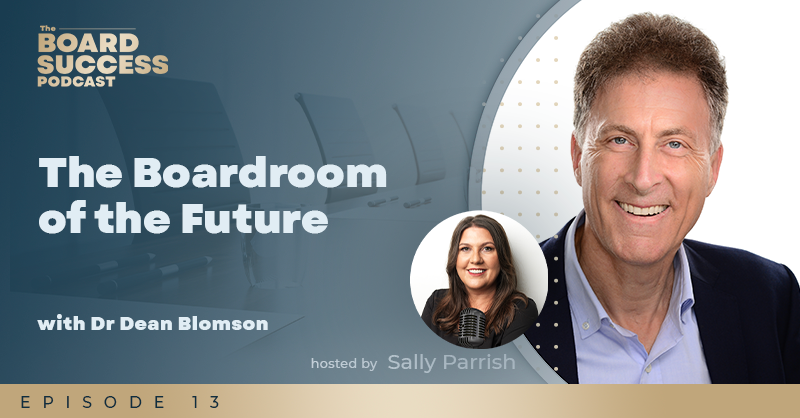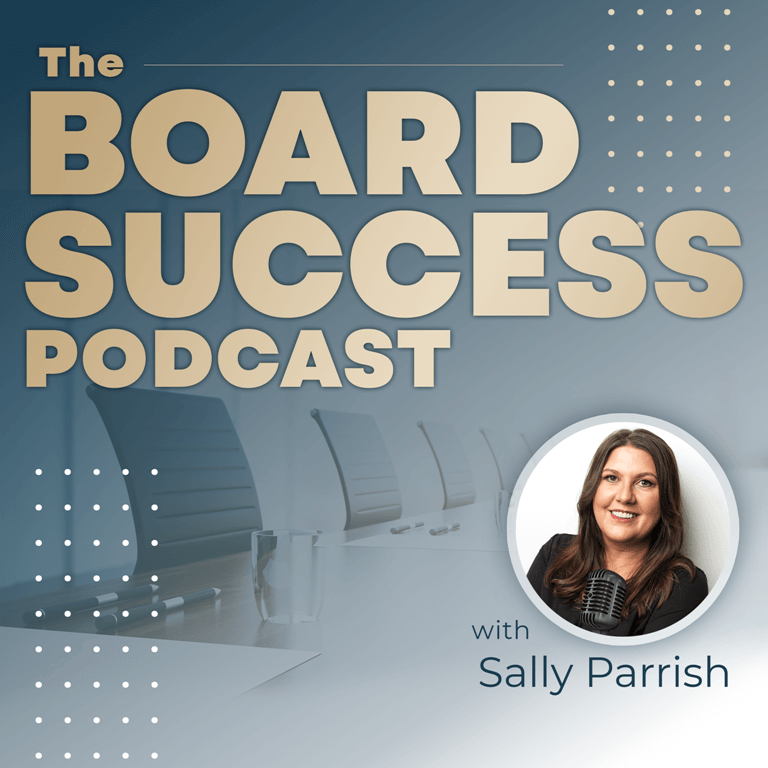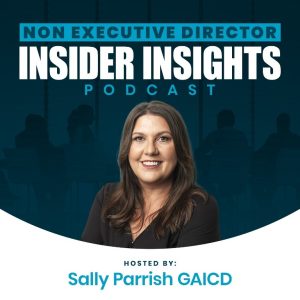How to Value Ideas in the Digital Age
Sally Parrish interviews Gareth Benson
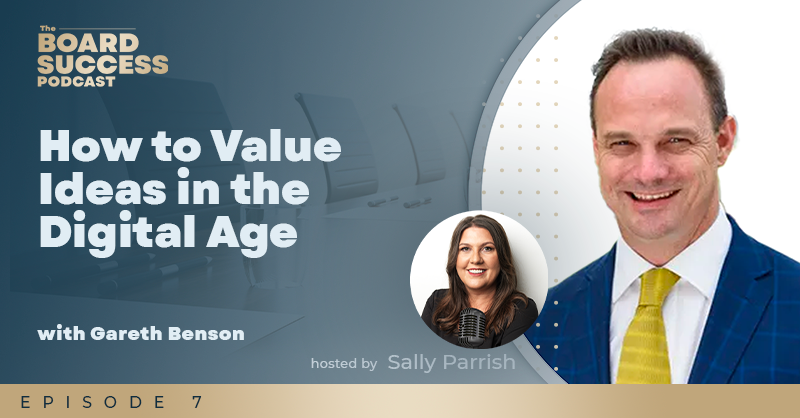
With the rise of ChatGPT and other Artificial Intelligence (AI) platforms, understanding the impact of Intellectual Property and data on business has never been more important. In this episode, Gareth Benson joins us to share his expertise on how to value and protect ideas in the Digital Age.
Gareth Benson is a published author, commercial and Intellectual Property lawyer, lecturer delivering workshops in Education, Digital Innovation and Intellectual Property Law for RMIT University and Charles Darwin University.
As a qualified commercial and Intellectual property lawyer Gareth assist in the protection and commercialisation of new Ideas and the humans that create them. With unique commercial skills he offers an inspired outlook to the creation and leveraging of intangible assets, known as Intellectual Property. This includes Trademarks, Patents, Designs and Copyright.
Gareth actively work with boards and executive teams in the Gig economy. He believes that with the advent of Artificial Intelligence and digital industries it is more important than ever for board members to understand the role of Intellectual Property in business.
FURTHER INFORMATION
Meet Gareth on Linkedin https://www.linkedin.com/in/garethbenson/
Click here to Buy Gareth's book "Ideology; Your Compass to Intellectual Property Success in the Ideas Economy" on Amazon
Gareth's website www.ipassist.com.au
Click Here to View the Podcast Interview Transcript with Gareth Benson
Sally Parrish (01:50):
So joining us today very much on the go from Darwin is Gareth Benson. Welcome Gareth.
Gareth Benson (01:57):
Hi, Sally, great to be here with you.
Sally Parrish (01:59):
So we're talking today about intellectual property. And I know that's an area that, you know, confuses people scares people. And we have some preconceived ideas that it's a very expensive area of law. So let's start if we may, by looking at what is intellectual property. Tell us a bit about that space that you've been working in now for 20 years.
Gareth Benson (02:25):
Yes, thanks, Sally. Yeah, so I'm an intellectual property lawyer. And what that fancy name is, is basically I'm a lawyer who deals with ideas. Intellectual Property represents the property of the mind or intellect. So it basically in business terms, it means the proprietary knowledge that we create with our ideas.
Sally Parrish (02:50):
I love that you've got a really fabulous book. And I've got to say this when I picked up your ideology, book, a book about intellectual property and the law of ideas, I wasn't expecting to enjoy the read. I'm gonna be quite honest, I was expecting fair enough to learn a bit, but I was great. How does the lawyer write such a great book? It was like I was, you know, I was just spellbound. It was really amazing storytelling. How did the book come about?
Gareth Benson (03:22):
Thanks so much, Sally. Well, I guess I am a creator, even though I am a legal practitioner, and have worked for places like SBS television, CSIRO, and the Australian center of Moving Image, the end of the day, I have been a storyteller and a writer. And that's my proprietary knowledge I and I've brought it into the book, being creative, since I was a young boy. And basically, I like that, that gives me a lens to actually understand not only the media industry, for example, and where intellectual property lies within it, but also within stories itself. I think stories contain ideas. And that's what idea ology was written, why it was written, was to help people understand through the power of story, the power of their ideas.
Sally Parrish (04:13):
I really love that. And for anyone listening today, whether you're interested in a book on intellectual property or not, I suggest having a look at this book, because it really does demonstrate how powerful storytelling is. We're always talking about storytelling being a leadership skill, it gives you impact, it gives you influence. And this book is a really incredible, incredible example of that. So whether you're looking at IP, or whether you're looking at storytelling, have a look at the book. And like I say, I was lost. So it starts out with this beautiful story of these Pelle divers in Australia. Can you take us back through that story?
Gareth Benson (04:55):
Yeah, sure. Sure. Yeah, look, as you mentioned, the beginning of the call I'm currently residing in Darwin, Australia, although I do work on the East Coast. I'm a Melbourne boy originally, but one of the stories that gripped me here was actually a story about two pearl divers that built a billion dollar company. And Pearl diving is a very, very dangerous issue, especially back in the day, the 1800s and early 1900s. And there were actually some immigrants were griefs off the coast of Broome brothers indeed, that would dive to find hurls, and Pearl diving has been long entrenched up here. But was this story is a local story is about these two brothers who then decided that they no longer wanted to be divers anymore, and they wanted to build their own boat and basically sail their own boat. For us forward about 100 years later, this family known as the past barley family, cultivate some of the most exquisite mother of pearl pearls that are exported, and it's now a billion dollar business, relating it to ourselves is that we are all sailors in a sense, if we're out in our own business, or perhaps if you're working on a board, you know, a board position for a big organization. We're all on a boat. But it's really about those that choose to build a boat within their own ideas. And these are the entrepreneurs that can shape and transform industries. So that's where the story begins. It begins around the idea that if you're going to take an idea out to market you have to build a solid vessel, and that's where ideology begins.
Sally Parrish (06:43):
I love that and I love all the stories that follow. You do a short history of time right? And we start with with start with Like the Agricultural Age and then the industrial age, and we all know, you know, it's no surprises that we're now in this information age. And what we're trading now is ideas, and it's all about content marketing, it's all about as much information as you can put out there. And I guess that's really creating some complications when it comes to IP. So let's talk about some of the artificial intelligence that's out there. There are, you know, the most well known one right now is chat GPT. Type in your content, and it will generate an email for your job description for you or, you know, a framework even for you, where we're using these AI tools to develop our ideas. Where does the IP ownership land with that?
Gareth Benson (07:45):
Look, this is a great question. And I'm loving the disruption that AI is bringing to mind I just say, first and foremost, I'll just say about ChatGPT, is that I just think it's the most advanced typewriter ever created. And when we look back in time, copyright and our laws around intellectual property began with the printing press. And in 1710, the Statute of Anne which actually gave people a pecuniary right or financial right to earn a living of what they could create. And in that time, it was authorship. Fast forward to our present day, ChatGPT is simply the most advanced typewriter ever made. And I think that we will find that you can still own the ideas that you are generating. It's simply a tool. It's simply a typewriter. And really, the obligation more than ever before is for us to be a captain of those ideas, whether we use AI tools or not, and to assert our intellectual property or ownership of it, I think copyright is alive and well.
Sally Parrish (08:57):
So if I'm hearing you correctly, these are tools to facilitate the creation of ideas. And if we, if we use them, we're effectively programming the tool to come out with the idea that we're looking for. And then we in effect, own that, is that correct?
Gareth Benson (09:13):
Precisely, precisely. I'll give you another example. Because this one's really topical in this last week, I was advising very talented graphic artists from New York, who brought out a graphic novel called Zara, Dawn of the Dead. And basically, she used another platform called mid journey, which is an animation tool. And simply, while once and an artist still do use graphic design, this artists use mid journey, which is an AR platform, just last week in the US. And I might add that this is different for listeners in Australia versus the US. But in the US, you can register your own copyright. And the US have just ruled that you can still own, you know, the narrative, the scripts, the ideas and compilation. But interestingly enough, you can't actually own at this stage, the AI images that you create with the tool, which I think's really complex, I believe in short, that we should be able to own anything we create with chat, GPT, or mid journey, or Dalai, all of these things are tools. And I think, quite simply, we've been using them for quite a long time, assisted technology to create and we should continue to do so yeah.
Sally Parrish (10:30):
And we're only going to see more of these, right? We've already got Tommy for PowerPoints. We've got playground for images, we've got Jasper for social media content. There's lots and lots of these tools coming on. It's a really interesting space. Because when I think about this, AI is probably one of the fastest moving things we have in the world right now. And law, no offense is probably one of the slowest. Right. It takes a while for the law to catch up true. So how is the law doing in this fast moving tech space right now?
Gareth Benson (11:08):
Well, I think the law is reactive and always has been Yeah, it kind of is a net that moves behind ideas and sort of does work on the balance of probabilities. It works to help rectify wrongs, but it works slower than perhaps the moves in society and when we're seeing such rapid advances in technology, I agree, Sally, the law is going to be challenged not only in terms of speed, but even in its delivery. I mean, let's not forget there are certain platforms. Now that can even help with minor offenses or even interpret the law. But again, I think and I'm seeing members of the legal fraternity Use the platform's and I think, again, it's going to be assisting, more efficient delivery. And if there's more efficiency being delivered, then I think we may find that the court cases and precedents move more quickly to. And I think that's actually an improvement to the system that I think everyone would probably celebrate, particularly if you've ever been the court system. So I think that the use of the tools and even the decisions made within the law could become more effective. We even know another recent example is that the metaverse you know, there was the first digital courtroom, a Colombian court presided over a judge presided over a case completely in a digital world, Metaverse environment. And there was some real positives. The World Economic Forum, for example, reported on last week. So I think efficiency is the key. And AI is a technology that may indeed improve the speed and the reaction of the law.
Sally Parrish (12:55):
Yeah, and AI is just one such example. Right? I know you're currently dealing in cases involving crypto NF T's data breaches, you know, the, there's a really wide scope. IP was always a kind of specialty within law, are you saying that there's going to be specialties within the IPS, like framework soon?
Gareth Benson (13:17):
I actually think so that the fundamentals of IP are still there. And I do think we might find some niches or we there might be required some amendments in certain areas. But if we just look at some of the basics of IP here on the, you know, even on this podcast today, when we look at copyright, copyright is the law of the written expression. Copyright, it basically, is about the original expression of ideas. And I think AI is just the tool or even NFT's or other digital, let's just call them digital technologies, essentially contain copyright. And whether it's the printing press, or whether it's now in the area of digital copyright is a lot alive. And well, because data is a huge copyright. And it's worth really valuable money. So I don't think it's going anywhere. And I don't think it still applies in its interpretation. It's about the expression of ideas, even if they are data sets. Likewise, trademarks are a very important part of the registerable intellectual property rights. These things are your brands. Now, last year, the metaverse was all the talk of the town. And there was no bigger rush for trademarks, when big luxury brands and and some very established software brands to make sure that they were protected in these new universes in software applications, for example. So trademarks, again, brands are going to own the bigger in a digital world. Will you still live in a world of ideas and trademarks help protect a badge of origin? Understand you have a trademark story actually just not a good one? Well, this is where people often intersect with IP, when their ideas are confronted, and I'd love for you to share it because it illustrates the power of trademark. Yeah.
Sally Parrish (15:12):
Look, I am a big advocate of protecting your work. Absolutely. And we'll talk about you know, the balance sheet in a moment for businesses and the value of these IP assets that they create. Because it's not just about you know, protecting your ideas is actually about creating value from those ideas. But yeah, my story. I've been coaching for nearly 20 years, a lot of what I do is train coaches in how to coach I'm all about raising the standards of the coaching industry. And I created what I came up with the idea of coach ology. So I trademarked that way back, way back, I want to go back 2010 Around that time, and I took the steps of protecting that globally. So I had the trademark for Australia, New Zealand, Singapore, America, UK and Ireland. Fast forward to the pandemic. I'm busy homeschooling. My kids, like many of us in Melbourne were and my account remember something laps, so don't know if it was my domain name or my web hosting, but there was something that took my website down. And of course there wasn't trade in so I wasn't aware of that. Until somebody in the US accused me of sitting on a trademark and not using it and made a hostile attempt to seize that from me. And for me, you know, as a coach in Australia in the middle of a pandemic, I was looking at legal action in the US Sir, I really didn't have the time or the energy to face. And, you know, as I said to you, before we've even, you know, met for this podcast, it's one thing to have the trademark, it's another to be able to uphold it.
Gareth Benson (17:08):
Yeah, look, absolutely. And look, you went down the right road, you've developed a very valuable idea and education business, out of your ideas, and you went down the right road of protecting that name as a badge of origin. That's what a trademark is. Basically, it serves to distinguish you from all others in the marketplace. And whether you're talking fast food brands or luxury brands, whether to Mercedes or Louis toms, or even you as a business owner, as a coach and consultant, you are developing ideas and intellectual property every day. And therefore, it serves you to protect your most visible asset your brand. In this case, you were challenged on it, and you may or may not have decided to take up the fight. But the reality is, is that putting a trademark in place is not an expensive move, it actually creates an asset, which I know we'll talk about short, but also more most importantly, protects all your marketing activities and gives you the exclusive rights to own and use the name in the market in which you're selling your goods and services. And over the years of developing a small or medium business or a large enterprise that is worth dollars. So therefore, it makes sense to protect that as a trademark. Challenging, it is tricky, and can be long and arduous. And there are lots of stories I could bring up about that. In fact, trademark law is littered with. However, the reality is this, registering a trademark allows you to use the registered R symbol. And even TM in the meantime, pending a trademark application. And it's like this Sally, it tells people in the rest of the market to stay off the grass. Yeah, basically, I own this name in the marketplace, a domain doesn't business name doesn't not even your Proprietary Limited Company, only a trademark will protect you. So therefore, as I say, in the ship of ideology, it's like the, it's the flag at the top of your ship. So you should wear it proud and you should protect it. Because it's what people recognize you in the marketplace as
Sally Parrish (19:11):
Yeah, and you're right it does it it builds a fence around the property or puts them posters up, you know, guard dogs beware. But you know, there's always gonna be someone that's going to chance it, I actually like it in fairness, I didn't challenge it. I didn't pursue it. I just figured at the time that I was going down a different path anyway. And I let it lapse with some bitterness if I let it go, but you know, new chapter new careers, so it's okay to let that go. I'm not that better, really, probably the biggest IP story and I hope you're not going to tell me it's a myth. Because I've been teaching this story for years. It's probably the hungry. Jack's Burger King story, right?
Gareth Benson (19:57):
That's a great example. I love it. Yeah, no, it's a great example. Yeah, so this
Sally Parrish (20:02):
great brand, Burger King, you know, all across the US all across the UK. And it ventures on to Australian stores. And a little Burger King Bobby shop in Sydney was it was already cool Burger King. Yeah, but had trademark
Gareth Benson (20:17):
as a registered trademark.
Sally Parrish (20:20):
Who would have thought that like a little burger bar would go to that extent, but the fact that they did meant that Burger King had to completely rebrand in this country. And now that rejects.
Gareth Benson (20:35):
That is the power of trademarks, ladies and gentlemen. So even you as a small operator can protect your name, even the biggest brands. And I really feel that that's a lesson actually in trademark protection, because that is the power of trademarks and protecting your brand and your name and your logo and your image and everything you've created. So I think it's a wonderful example.
Sally Parrish (21:00):
So we've got the trademarks as a protection, right, keep off the grass, don't take my ideas don't steal my idea. But then we've also got the value creation around those ideas in terms of the balance sheet. So what advice do you have for people on boards right now in terms of one, understanding the assets that they have to kind of collating them and making sure that they maintain all the appropriate you know, legalities around those, and three may be value in those. Yeah, look,
Gareth Benson (21:32):
I think ideas. We live in an ideas economy and every board member will probably be very aware of the impact of digital and now AI and other technologies. In fact, when you look at the core assets of an organization 100 years ago, What was known as plant and equipment that came from the Agricultural Age, and it was very much the assets were physical. And the rest the ideas was known as goodwill. If you look in the last 20 years of businesses, and I'm not talking big, just big tech companies, but I'm also talking about anything from universities as a business through to, you know, those working in the cloud economy, whether it's digital media marketing, or otherwise 80% of a business is now what's known as intangible assets or ideas. So the registration of intellectual property actually creates assets, which can be valued as intangible assets, and placed on a balance sheet, we do this through a process called an IP audit, or an IP assessment, it's probably a nice name for it. And often with more established organizations, those that have established boards, then that actually gives an opportunity for a board member, or even the CEO or CFO or the whole leadership team to actually understand the idea assets that lie within their business. It's a really powerful process. Because all of a sudden, whether it's the education and training programs, or whether it's the databases, we know data is very valuable, categorizing it as intellectual property, registering ideas that come in and out of the knowledge, the combined knowledge bank of an organization can be a very empowering process, that will reflect on the balance sheet. It's also a great strategic tool that board members can use to make decisions about the assets that they own. Some organizations that have been decades long, don't even understand what they've got anymore, whether it's been through, you know, there's been movement at the station, and different people have left, maybe they have some I capture intellectual property, ability to capture the information of the employees or the executive team. But then is the day many of the moment got their eye on it. So my humble suggestion is that if you're on a board is to really consider and one understand what intellectual property is, from copyright to trademarks to patients, you know, patients are the inventions, new inventive steps that have been created and registered. And many engineering companies or just for an example, have patents in the, you know, in what they create, but to understand the categories of intellectual property will then serve to empower and a board member to actually begin to understand the intangible assets, the ideas that lie within that business. And I feel it's a great power for boards to actually embrace this understanding, because they can create great value and leadership within an organization who felt particularly those organizations that value ideas.
Sally Parrish (24:53):
That's really good advice, because I can see some kind of space out there between what we're currently doing. So we've got, you know, luxury brands, big brands, they're really good, around protecting their brand name, their brand identity, their brand colors are, you know, there's a whole business around brand recognition out there. And we've also got the people that you know, create new inventions and manufacturing processes, and they're all patents, right how we sure develop a thing. But that middle ground, that space that I'm seeing is everything else, which can be as simple as the way that you do something within your business. So it could be, you know, the way that you do your performance reviews, if you come up with a way that really works or has outstanding, incredible results, then that itself can be protected as a way of doing things right, an ebook that I put out that just gives, you know, seven steps to get an on a board, IP, ip ip, so much there that we can look at within the business and commercialize
Gareth Benson (26:03):
100%. I mean, I love this area of education. And consultants often are building enormous amounts of IP. And Sally, you've just given the great exalt example, because every organization will have learning and training processes. And it is copyright, which goes back to one of our fundamental intellectual property rights, which is the right to express and one thing I just want to add on that is that it can be protected the systems and processes or training out manuals, for example, training programs, there is so much that can be protected with the power of contracts in combination with intellectual property. In fact, contracts and IP go together. Yeah, the reason being is that our terms and conditions are the licensing terms of any of our agreements and contracts are I like oxygen, we're executing them every day, when we really think about what's in that is that there's the fundamentals of what we place in an agreement. And if we identify our intellectual property of we're aware of what it is, we can basically breathe out to a huge degree of people can intersect with new customers in new ways. And that's the power of contracts and intellectual property together. And so I just wanted to make that point, because I think, as boards, there's a great opportunity to understand their interrelationship both of those things together.
Sally Parrish (27:28):
Yeah, and coupled with your advice around, you know, this not being very expensive, protecting your assets doesn't necessarily cost a lot of money. Whereas losing those assets to the competition can cost you a fortune, right? If you if you have to change every piece of stationery and your business, because there's one word on it that you can no longer use, you know, all of your letterhead, business cards for your entire sales force all of your signage. It's a really expensive exercise if you get this wrong, but it's a relatively inexpensive, inexpensive exercise. To set it up into it. Well,
Gareth Benson (28:03):
100%. And look, there's again, there's a graveyard of IP stories out there, which I've often formed the law, and I won't go into them now, whether it's Ugg boots and the loss of an Australian iconic name, just because the registration wasn't in place, or CSIRO, not effectively pasting in some of the core technology of wireless known as wildland technology and escaping to American shores, we lost a billion dollar industry in some respects, just because and this was our chief scientific and research organization didn't effectively patent its ideas. So there's a lot to be learned there. And more importantly, there's a lot to be gained through the power of this process. So I think that that's the thing about IP, it actually empowers growth in ideas. And it actually commercial accelerates the commercialization process around ideas, if contracted correctly. So I feel boards for boards, it's a fundamental, especially now we live in an ideas economy. And we work in one that is only going to get more data driven, with the advent of AI and new technologies, and so on. Therefore, I believe the understanding around intellectual property is more important than ever, because they're going to allow organizations and moreover boards to be a cat, true captain of their ship.
Sally Parrish (29:23):
So as she was saying that I was thinking about, you know, I have a cultural lens. So think about what if we created a culture of idea generation, right? What if we compensated our businesses to come up with brand new ideas, but who would own that if an employee came up with an idea for a big global business, and they took the idea on and got the trademarks, the copyrights, whatever was needed? Who would own the idea?
Gareth Benson (29:53):
Well, you know, depends on how whether there are humbled startup or whether they're an employee, often in anyone's employment contract working for an organization, there is an intellectual property clause, which is assigns those ideas to the organization. However, highly innovative companies encourage that within their employees, whether you're Apple or even Qantas Qantas is a famously innovative company in terms of what it's produced in terms of ideas and IP and efficiencies over its 100 year history. It's actually a fascinating Australian story, which grew out of the Northern Territory in Queensland, and a shed some short male contracts that grew into this global organization. But they have fostered innovation all along. And they were breaking literally sound barriers, and also innovation barriers in in through the advent of jumbo jet. The reason I'm sharing this story is that they're very innovative and encouraged innovative in their employees. And so they will reward employees, even though the organization, you know, will house and kit and usually effectively protect and grow that idea. Same is true with Apple. The same is true with Google. So they're actually cultures that foster a strong culture of innovation. And I think that should be encouraged. But equally so the startup or the entrepreneur, it's never been an easier time in history, for people to take their ideas and take them out to market. We have digital tools that are available for us for next for free. And we have a distribution channel as big as the widest the world now. Never in a time in history. Have we had all those things. So never has there been an easier time for you to access the market and different markets and move with new opportunities, whether they're created in AI or many other industries that are yet to be born. There. We are consistent is that idea These are human ideas, we'll be assisted with a good understanding of intellectual property, and then how to commercialize them. And I think these are the disciplines that boards need. These are the disciplines that need to be split taught in schools, and at business colleges, because that's how truly will advance society. And let's not forget about the sustainability of our planet, and ideas that are needed and need to be born in humans to solve those problems. This is all the power of intellectual property, new ideas that solve human problems. And just an understanding and appreciation of the power of intellectual property within business, I believe is a fundamental business skill in the 21st century.
Sally Parrish (32:33):
Look, I love your passion and your skills in this area. So evident in your book ideology, you bring these ideas to life, and you make them easy to understand. And for a lot of us, this can be a really confusing area of law. So thank you for the work that you do. And for bringing those stories to life. I will put a link to your book in the show notes, but also to say your website, Gareth benson.com, you've got resources on your website, where boards and businesses can have a look at their company assets, and really prompted to think about what they might have that might be of value to their businesses.
Gareth Benson (33:15):
Yes. Now, I have done a number of interviews with entrepreneurs and business owners, and even to some webinars about the fundamental rights of intellectual property, I do a master class and I work quite frequently with large and small organizations and helping them understand what their IP assets are, you can gain an insight to some of those that Gareth benson.com or find me at my legal practice IP assist.com.au. But I might finish with one quote, actually, from my book, which actually I think is very true for our current contemporary age of an ideas economy. Mark Getty, who famously created Getty Images, which is one of the first commercial image libraries, it's still available today. Some were you buying purchase images in the early 2000s. He founded that, and he's actually the grandson of oil tycoons. So he comes from a billionaire family. But he forged this idea because he was an artist and an entrepreneur and believed in the power of image and saw the opportunity with digital images, and built Getty Images and sold it for $3.2 billion in about a decade. And he's famously said that the richest people 100 years ago moved assets from one place to another, he was probably talking about his grandparents. But if you look at the ideas of today, that intellectual property is the Oil of the 21st century. So it serves us coming from to understand ideas and IP intellectual property, because businesses like Canva, which is an Australian gym, born by a 35 year old and her partner, Cliff and Melanie Perkins, Cliff Albright and Melanie Perkins, basically have built this business in Australia and Jim in under 10 years, and it's worth something like, I think now $35 billion up. And all of this was born out of the power of their ideas and intellectual property. So I think that there's a lot that boards can take away. And quite frankly, I'm here to champion and help along the way. I'm encouraging you to be a captain of your own ideas and steal your company ship strongly into the 21st century.
Sally Parrish (35:35):
Thank you and you're really influential in that area. You've got me thinking about businesses needing to foster their innovation and be empowered and grow through their ideas that they generate. Thank you so much for joining us today, Gareth. It's been lovely chatting to you.
Gareth Benson (35:51):
It's a pleasure Sally.
Sally Parrish Outro (35:54):
Thanks very much for tuning in. I'd love to know what you thought of this episode and what you took away from it. I'd also love to know what topics you're interested in hearing about in the future, and which experts you think should be featured on this Board Success Podcast. If you enjoyed listening, please share with your colleagues who might also have an interest and make sure you click to follow us subscribe to be advised about upcoming episodes. In the meantime, if you're a leader or a successful executive, and you're looking to launch your board career, or if you're an established non-executive director and you're ready for the next level, check out the resources we have available for you on the website at boardcoachinginstitute.com.au. Until next time, here's to your boards success.
Explore more episodes
